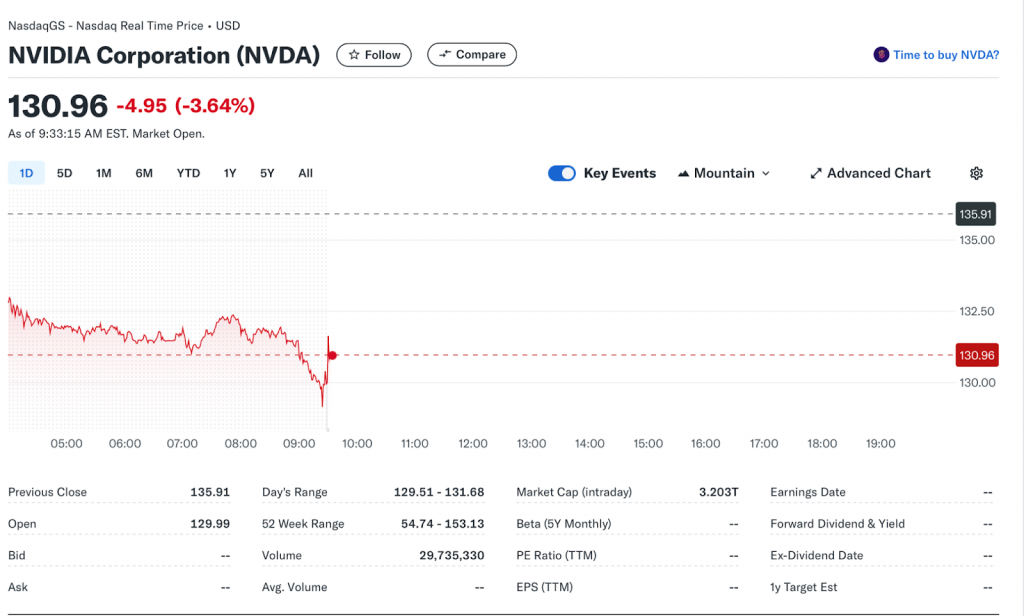
The Biden administration has introduced new restrictions on importing U.S.-designed computer chips, aiming to deny other countries access to advanced technologies, CNN Business reports.
U.S. Commerce Secretary Gina Raimondo noted that the rules are intended to protect cutting-edge AI solutions and limit their distribution to allied countries.
The restrictions introduce mandatory licenses for certain chips. The regulations divide countries into three tiers for exports of advanced processors and AI solutions:
- Tier 1: Excludes allied states such as Australia, Japan, South Korea, and Taiwan — 18 countries in total. They face no new restrictions.
- Tier 2: 120 nations, including Singapore, Israel, Saudi Arabia, and the UAE, will encounter limits on the amount of computing power they can purchase. They may apply for extra capacity via license requests.
- Tier 3: A complete ban on receiving the technology is imposed on Russia, China, and Iran.
U.S.-headquartered suppliers are allowed to deploy up to 50% of their computing capacity outside the country.
A 120-day comment period for the new rules has been opened.
“We hope the next administration fully utilizes this period to listen to experts, industry representatives, and partner countries. I fully expect future policymakers may make adjustments based on these discussions,” Raimondo said.
Since October 2022, the Biden administration has introduced multiple rounds of semiconductor export curbs aimed at China.
How the Restrictions Work
The new rules regulate the flow of U.S. AI chips and technologies abroad. They cap exports of GPUs at 790 million TPP until 2027—roughly equivalent to 50,000 Nvidia H100 chips.
“50,000 H100s offer massive computing power—enough for advanced research, powering entire AI startups, or supporting the most demanding AI applications on Earth,” commented Divyansha Kaushik of consulting firm Beacon Global Strategies.
By comparison, in September, the AI startup xAI launched a training cluster called Colossus using 100,000 Nvidia H100 GPUs—what Elon Musk calls the most powerful AI training system in the world.
Some companies like Amazon Web Services or Microsoft are exempt from these limitations because they meet specific licensing requirements.
Entities with “Verified End-User” status are limited to around 320,000 advanced GPUs over the next two years.
The move is intended to block China from obtaining AI chips through third countries. The U.S. aims to track and control who uses its technology.
Australia, Belgium, Canada, Denmark, Finland, France, Germany, Ireland, Italy, Japan, the Netherlands, New Zealand, Norway, South Korea, Spain, Sweden, Taiwan, and the UK are exempt from the restrictions.
Criticism from Tech Giants
Tech giants Nvidia and Oracle criticized the new measures.
Ned Finkle, Nvidia’s Vice President of Government Affairs, said the rules “threaten to disrupt innovation and economic growth worldwide” and “undermine America’s leadership.”

Ken Glueck, Executive Vice President at Oracle, argued that the changes amount to overregulation rather than safeguarding the interests of the U.S., its partners, and allies.
Context
- In December, China initiated an antitrust investigation into Nvidia.
- Earlier, Chinese military-affiliated institutes used Meta’s publicly available AI model to develop a tool potentially suited for military applications.








 Cryptol – your source for the latest news on cryptocurrencies, information technology, and decentralized solutions. Stay informed about the latest trends in the digital world.
Cryptol – your source for the latest news on cryptocurrencies, information technology, and decentralized solutions. Stay informed about the latest trends in the digital world.